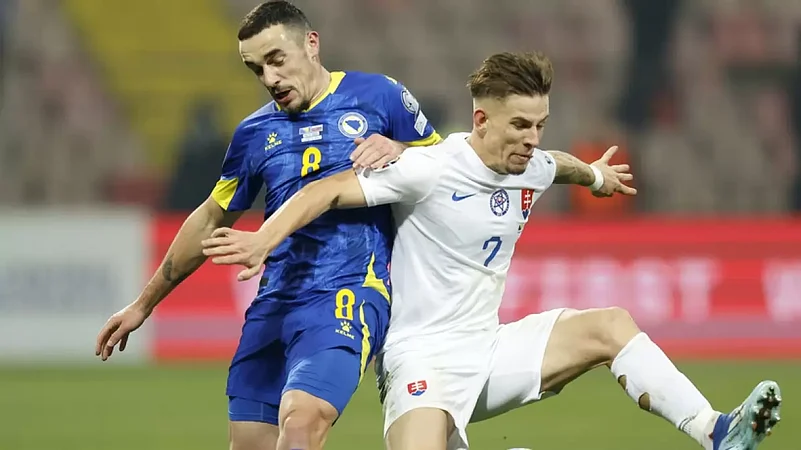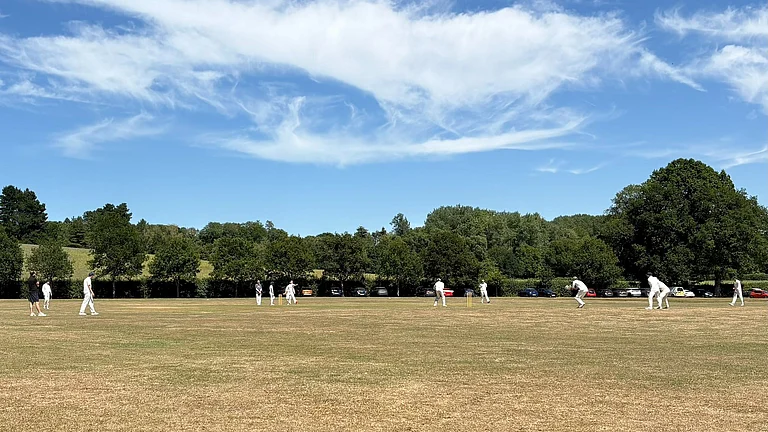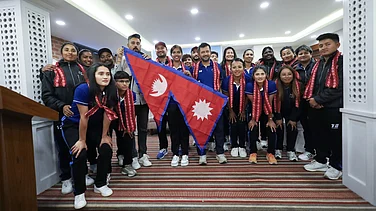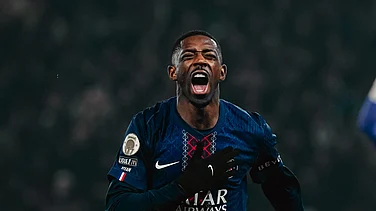After a hat trick of European Championship qualifications this week for football teams from the former Yugoslavia, Bosnia-Herzegovina aims to make it a record four at the tournament next year. (Football News)
The sense of history was appreciated Thursday by Bosnia's coach Savo Milosevic, the former Aston Villa forward who represented Serbia – under three different team names in a 15-year international career – and also has been an assistant coach of Montenegro.
Serbia advanced to Euro 2024 on Sunday from its qualifying group. Slovenia made it on Monday. Croatia followed on Tuesday.
“It's incredible actually,” Milosevic said at UEFA headquarters, after Bosnia was paired with Ukraine in the playoff semifinals in March. The winner will host Israel or Iceland five days later with a place at Euro 2024 in Germany at stake.
“Already three teams from ex-Yugoslavia have qualified,” Milosevic told The Associated Press. “Hopefully we will join them. It's something almost impossible to imagine before this.”
Only Croatia and North Macedonia of seven UEFA member federations who were part of the former Yugoslavia qualified for Euro 2020. At the first 24-team edition in 2016, it was just Croatia playing in France.
At Euro 2000, Milosevic was the five-goal tournament joint top scorer playing for the FR Yugoslavia, which was the combined Serbia and Montenegro team. Slovenia also qualified then for its major tournament debut.
The unified Yugoslavia team played at the 1990 World Cup and then was famously excluded from Euro 1992 weeks before the start because of United Nations sanctions when the region fell into a devastating war. With Yugoslavia out, Denmark got a late call and stunningly went on to win the title.
A revival on the field for soccer in the Balkans comes as Euro 2024 organizer UEFA is led by officials from the region.
UEFA president Aleksander Ceferin is a lawyer from Slovenia, its chief of football Zvonimir Boban played in the standout Croatia team of the 1990s, and the senior executive liaising with 55 member federations is from Serbia, Zoran Lakovic.
Bosnian media has reported Ceferin as saying Sunday, when attending the Serbia-Bulgaria game, that he would “certainly like” as many teams from the region to qualify.
Milosevic acknowledged Thursday “it's not going to be easy” and not just because it first faces a Ukraine team he believes is the best among the 12 teams in the qualifying playoffs.
He started in the Bosnia job just two months ago as the team's third coach this year. His predecessor, Meho Kodro, lasted for just a few weeks and only two games.
Still, Bosnia was assured of a playoffs place because of its Nations League results in 2022 and that bought time for Milosevic to take stock.
“I tried to use these last three games to see what we have, what we basically can count on,” he said. “I didn't look for the results.”
Those results included two heavy losses: 5-0 at home to Portugal and 4-1 at Luxembourg, which is in a separate Euro 2024 playoffs bracket.
The best-known Bosnian players are still Edin Džeko, who started for Inter Milan in the Champions League final six months ago, and Miralem Pjanic. They combine for 70 years in age and close to 250 national-team games.
“There is always quality in Bosnian football, genetically kids are born there with quality and talent,” said Milosevic, who also was born there. “It's a historical thing.”





















